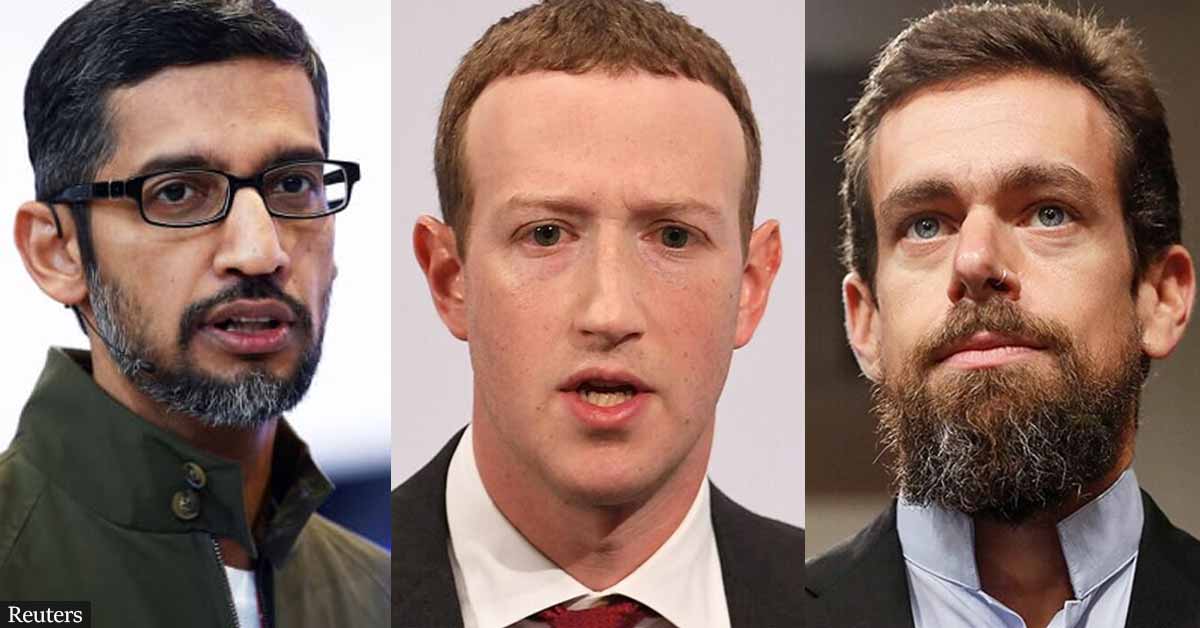A little less than a week before the United States announces its next president, the CEOs of Google, Facebook, and Twitter are set to be grilled by Republicans who accuse them of anti-conservative bias.
The Senate Commerce Committee has called in Twitter CEO Jack Dorsey, Facebook’s Mark Zuckerberg, and Google CEO Sundar Pichai to testify on Wednesday. The tech bosses have agreed to appear remotely after being threatened with subpoenas.
Republican senators led by the president are throwing a number of grievances against the social media giants, which they accuse of deliberately suppressing conservative, religious, and anti-abortion views.
The GOP push against Facebook and Twitter accelerated Thursday after Republican senators threatened the CEOs of the social media companies with subpoenas to force them to address accusations of censorship in the closing weeks of the presidential campaign. https://t.co/bqxJOHytV8
— CBS4 Indy (@CBS4Indy) October 23, 2020
The unrest reached its peak earlier this month after Twitter and Facebook censored a New York Post story regarding presidential candidate Joe Biden. This was a never-seen-before action taken against a well-established media outlet. The Post cited troublesome emails from Biden’s son Hunter that were reportedly brought to light by Trump allies.
The two platforms have been censoring President Trump, press secretary Kayleigh McEnany, and numerous other conservatives without solid reasons for doing so.
Big Tech is acting like Big Government in censoring speech!
Censorship happens in rogue regimes not in the United States of America where we value free expression
pic.twitter.com/pDGX2RX5LF
— Kayleigh McEnany 45 Archived (@PressSec45) October 21, 2020
From Tuesday on, Facebook is not accepting any new political advertising. Adds that were previously blocked will be able to run until the polls close next week when all political ads will be banned temporarily. Google will also be stopping political ads after the polls close. Twitter barred all political advertisements in 2019.
In addition to testifying, the bosses will also be looking into proposals to revise legal protections for online speech, an immunity that both Democrats and Republicans say enables these companies to abdicate their responsibility to impartially moderate their content.
Social media platforms are gateways to news on the internet.
As such, many say their dominance in the advertising sector has almost killed the struggling news industry, especially when it comes to local publishers.
A recent report cited the additional crushing effect of the recession caused by the coronavirus crisis. Around 7000 newspaper staff are expected to be let go this year, and newspaper revenues will reportedly go down by 70% from 20 years ago.
“Local news is an incredible engine for the creation of accurate information. We don’t want to lose that infrastructure,” Senator Maria Cantwell of Washington state said in an interview.




